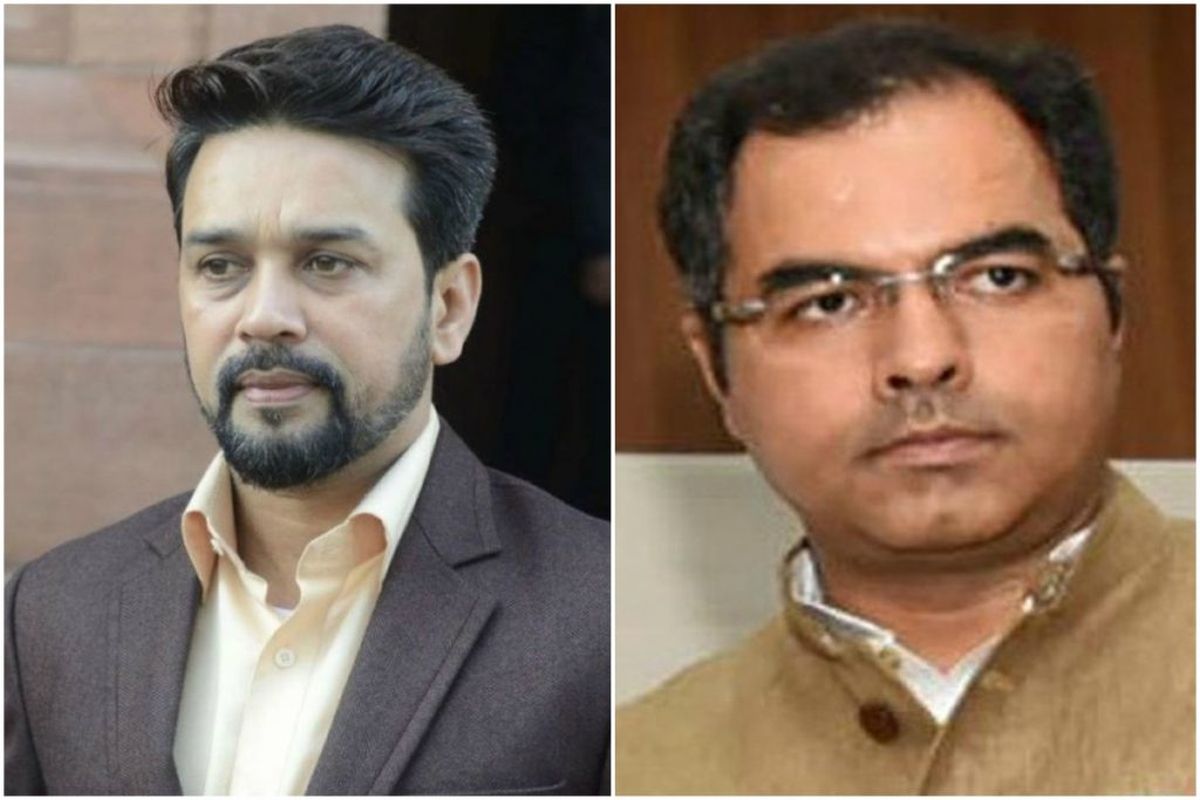UP BJP draws strategy to increase voter turnout in 2nd phase of LS polls
According to a senior party leader, the BJP has changed its strategy. Now every 10 votes will be monitored.
The BJP, which has been out of power in Delhi for more than two decades, is banking on the electorate being swayed by communal rhetoric.

The duo were under the scanner of EC after making shocking statements during separate poll rallies for the Delhi polls. (Photo: IANS)
With a central minister exhorting voters to gun down traitors ~ an exhortation that appears to have worked ~ and a member of Parliament equating the Shaheen Bagh protesters with rapists and killers while warning of a Kashmir- like situation, the BJP has made its intentions clear. It has gone back to its tried and trusted formula of polarisation in a bid to win the electoral battle for Delhi. In the face of the Aam Aadmi Party’s almost single-minded focus on local issues of development, the BJP has now turned the Shaheen Bagh protest into a symbol of Hindu-Muslim divide ~ a divide between “traitors and nationalists”.
The protest site is in one small corner of Delhi, but the protesters have been accused of holding the entire city to ransom. The truth is a few people in upmarket colonies around the area are inconvenienced because of traffic hold-ups but many in Delhi don’t even know where Shaheen Bagh is. Minister of State for Finance Anurag Thakur’s egging on a hysterical crowd to shoot down ‘traitors’ and North West Delhi MP Parvesh Verma, son of a former revered chief minister of Delhi, fearmongering about a community is clearly part of a design that has the approval of the top echelons of the BJP as Home Minister Amit Shah himself has been exhorting voters to press so hard on the lotus symbol that the shock is felt in Shaheen Bagh.
However, the party should pause and consider its own performance in recent state elections which have been far from impressive. The same issues were raked up, the same jingoism was relied on, but the response was tepid at best. In a country where the economy is on the brink and rising prices are throwing most families’ budgets out of whack, people are waking up to the fact that religious identity alone cannot feed people. Jobs, healthcare, education are the issues that need to be resolved.
Advertisement
That is what Arvind Kejriwal and his Aam Aadmi Party are trying to focus on, talking of the reduction in electricity and water bills in Delhi, the improvement in government school education as well as the attempt to provide affordable healthcare to the underprivileged through mohalla clinics. Both AAP and the BJP initially tried to take credit for regularisation of unauthorised colonies but the lack of progress on the issue has forced them to jettison it. Pre-poll surveys and the word on the street are that AAP’s message is resonating with voters.
The BJP, which has been out of power in Delhi for more that two decades, is banking on the electorate being swayed by communal rhetoric. Now it is over to the Delhi voter. The election is a little over a week away, most people must have made up their minds. The voting percentage has been going up with every election, with new voters exercising their franchise enthusiastically. The hope is that middle class voters shed their traditional apathy and go out on polling day. Seldom has an election had more significance than the battle for the Capital, for the outcome may determine the course of future political discourse.
Advertisement